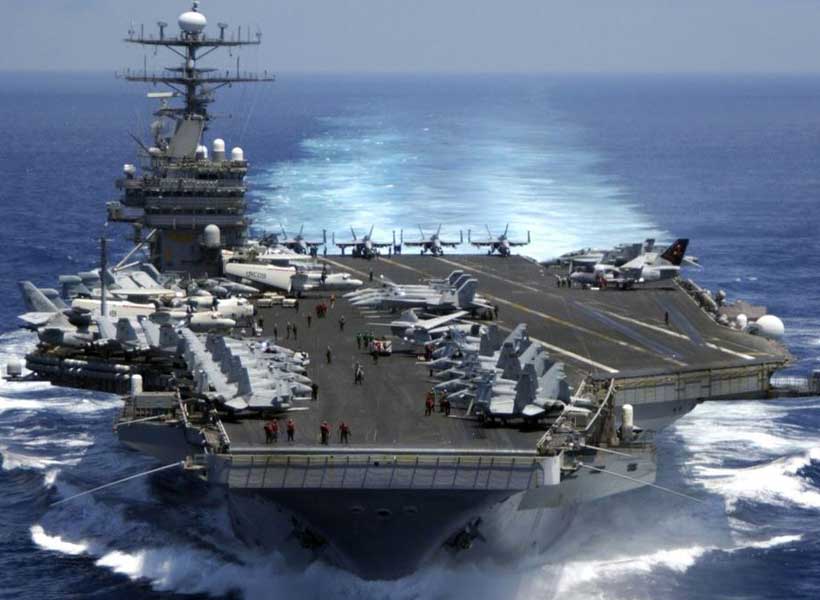A month ago, right in the middle of Chinese New Year, the United States and France decided to unceremoniously apply pressure on Beijing by sending an American aircraft carrier strike group and a French nuclear-armed submarine through the South China Sea on separate operations, which was met with criticism from China. To make matters worse, both France and the United States did this again, but with different vessels. The second time, France sent the Tonnere and a frigate, the Surcouf on a three-month mission which includes taking part in combined military exercises with Japan and the United States. The expansion of naval excursions like these in the South China Sea show an obvious push by the United States and France for an increased presence in the area, and though the United States and France may see these ships as representing a spear of democracy in Asia, they also represent terrible policy and a blunder in the Asia-Pacific by all nations supporting it. To enable truly productive dialogue between nations like France, the United States, and China, these military exercises must stop.
To see why, we must look beyond the complicated details that often accompany foreign policy, and broaden our imaginations for a minute. Imagine that China is in the middle of renegotiating the Trump administration’s failed trade war. China sends a delegation to Washington, but there’s a twist. In this scenario, for months on end, Beijing sends nuclear-armed warships halfway across the world, parading them outside San Francisco Bay, and Chinese aircraft carriers to patrol the seas surrounding Hawaii. How would the United States or any nation react in such a scenario? In the United States, the joint chiefs of staff would be summoned to the White House, and America would be in a full-blown nationwide crisis. Countries like the United States often criticize China for being uncooperative in terms of dialogue and a threat to democracies all across the world. Take, for example, the recent assertions by the Biden administration that China refused to fully cooperate with the World Health Organisation’s research team in Wuhan, or the strongly-worded exchanges on both sides during the high-level US-China talks in Alaska. China sending warships to San Francisco is a hypothetical scenario. It has never happened, and likely never will. But the United States and France sending warships to the shores of China is very, very real, and has severe consequences. When we take this into account, of course, China appears to not be cooperating — how can they? Cooperation with the United States and France would be seen as submitting to coercion because the so-called cooperation currently promoted by the United States and France does not come from a position of equals. Instead, China is pressured to ‘cooperate’ with warships patrolling their borders. This is not true cooperation or diplomacy — it is a concentrated effort of intimidation cloaked behind a shiny façade of democracy, and a failed policy of containment that the United States and its allies have been pursuing far too long in the region.
The militaries of each nation have a place in policy, just not here, and certainly not in this way. To fully get China to join the global negotiating table, the United States, France, and their allies like Australia must first join the table themselves by treating other nations like China as equals. They must stop sending ships to Asian seas, and then when China reacts, complaining loudly about a problem they themselves exasperated. The South China Sea may be contested waters, but in the place of warships, the United States and France should send their fastest planes carrying their sharpest diplomats, not missiles. They should together with China spend time, money, and effort to reopen — in a safe manner —international travel which has been largely closed since the COVID-19 pandemic, ease the entry of foreign professionals and students into China, and rapidly double-down on intercultural dialogue and exchange, restoring previous exchange programs canceled by the Trump administration. In the long term, these exchanges will pay off as countries learn to see each other as human — unique polities with different values and definitions of what is acceptable, the latter of which the United States and its allies like France have decided without consultation for too long.


